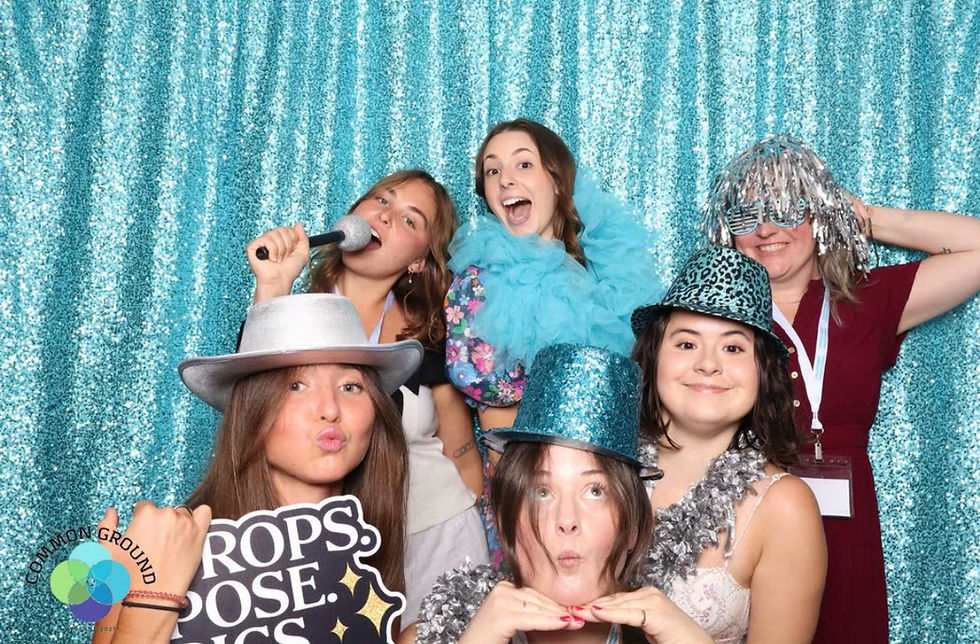Bobby Jones and Dysautonomia Conferences
- The Norris Lab
- Sep 1, 2025
- 3 min read
Updated: Sep 4, 2025
This summer, members of the Norris Lab had the honor of presenting their research at two major national gatherings: the Bobby Jones Chiari & Syringomyelia Foundation (CSF) THRIVE Conference and Unite@theHill events in Washington, DC, and the Dysautonomia International 13th Annual Conference, “Common Ground,” in Raleigh, NC. Both events brought together leading researchers, clinicians, patient-advocates, and policymakers to advance the understanding and treatment of hypermobile Ehlers-Danlos syndrome (hEDS), hypermobility spectrum disorders (HSD), and dysautonomia.
Bobby Jones CSF Conference & Unite@theHill in Washington, DC
At the THRIVE Conference and subsequent Unite@theHill advocacy event, the Norris Lab was represented by:
Dr. Russell “Chip” Norris, Principal Investigator
Dr. Cortney Gensemer, Postdoctoral Fellow and Patient-Scientist
Molly Griggs, Program Coordinator and Director of Patient-Science Operations
Roman Fenner, MD/PhD student
Our team highlighted the lab’s unique patient-scientist model and its impact on accelerating research and building bridges between the scientific and patient communities. Discussions focused on the urgent need to shorten diagnostic timelines, improve understanding of underlying biology, and translate findings into therapies that address the lived realities of patients.

Dysautonomia International 2025 “Common Ground” Conference

At the Dysautonomia International Conference, Norris Lab members shared new findings from our ongoing work to unravel the biology of hEDS.
Dr. Norris presented the hEDS Research & Clinical Care Roadmap and shared insights from our large global survey study that was just published in the Journal of Clinical Medicine:
Diagnostic delays remain significant, with hEDS patients reporting symptoms on average 22.1 years before diagnosis.
The most common patient-reported problems were chronic pain, autonomic dysfunction, and gastrointestinal issues, not just joint instability.
70% of patients reported a triggering event that worsened symptoms or revealed new illness presentations.
These findings suggest that hEDS may not solely be a structural connective tissue disorder. Collagen changes may be a consequence of other biological processes rather than the root cause, but further research is needed to explore this relationship more.
Whole exome sequencing (WES) revealed new candidate genes, including KLKs, which appear at higher rates in hEDS than the general population. The data supports the the theory of EDS being polygenic, meaning multiple genetic factors contribute.
Dr. Cortney Gensemer expanded on this by asking: Is hEDS purely a connective tissue disorder, or is the immune system playing a bigger role?
Data from nearly 3,900 hEDS and HSD patients showed that one-third also had Mast Cell Activation Syndrome or related conditions.
In our latest study soon to be published in Immunohorizons, the team identified 35 proteins that were significantly altered, many linked to the immune system, clotting factors, and the inflammatory processes.
Importantly, exposing normal fibroblasts to serum from hEDS patients altered pathways in connective tissue, suggesting immune system changes may impact connective tissue biology.
More information will be released soon, along with research translations.

Together, these findings highlight a new paradigm: hEDS may be driven by complex interactions between genetics, immune regulation, and connective tissue biology. More research is needed to determine the proper connections between them.
Looking Ahead
The Norris Lab is honored to share our research at conferences like these where science, advocacy, and patient experience come together. These presentations reflect the growing recognition that hEDS and related conditions require multidisciplinary approaches: integrating genetics, immunology, and patient-driven insights.
We are grateful to the Bobby Jones CSF Foundation and Dysautonomia International for creating spaces where collaboration can thrive. We look forward to continuing this work in partnership with the patient community.



Comments